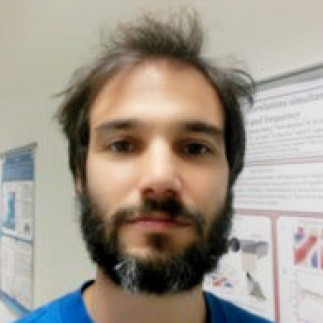ATTENTION: salle inhabituelle: D-460 Roger-Gaudry
Optical devices based on exciton-polariton quantum fluids
Dario Ballarini
CNR-NANOTEC
Abstract: Exciton-polaritons are composite bosons arising from the interaction of light and matter in semiconductors materials. The photonic component provides the excitons with a light mass and robustness against dephasing, while the material component dresses the photons with sizeable interactions. Above a critical density, exciton-polaritons undergo a phase transition to a macroscopically degenerate quantum state akin to Bose Einstein condensates which survives up to room temperature and in a disordered environment. Such properties make exciton-polaritons an interesting platform for studying many-body physics in solid state heterostructures and a promising candidate for the realization of efficient optical devices. In this talk we’ll see how an exciton-polariton condensate in high-quality semiconductor microcavities can be optically manipulated by externally imposing the phase and density landscape. The excitations of the condensate, the effect of the exciton reservoir and the control over the formation of topological structures are measured and described in terms of particle-particle interactions and energy relaxation toward the ground state. Moreover, the limit of a single polariton propagating within the plane of the microcavity is discussed in terms of the requirements for the realization of nonlinear gates for quantum information processing. Finally, different strategies to achieve room temperature propagation and interactions are reviewed, including the implementations of alternative photonic structures and the strong coupling with low-dimensional, hybrid organic-inorganic materials.
For more information about the research group, follow this link.
Cette conférence est présentée par le RQMP Versant Nord du Département de physique de l'Université de Montréal et de Génie physique de la Polytechnique.

